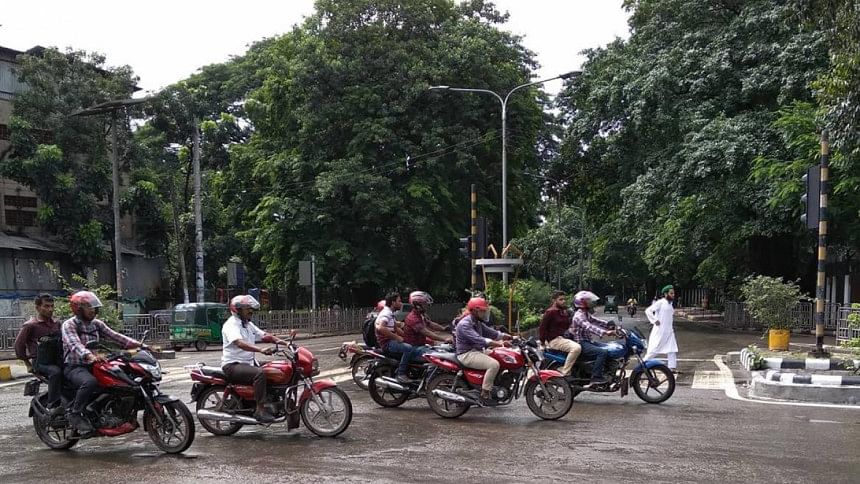Where ride-sharing services fail

When ride-sharing services like Uber and Pathao first emerged in Bangladesh, the country's transport sector saw a gradual yet significant shift. Prior to that period, city-dwellers had very few options for commuting — namely public transportation or private taxi services. While public transports were quite cost-effective, they lacked convenience and safety. On the flip side, private services were exponentially faster and more convenient, but they were also unpredictably overpriced.
So, it was only natural for services like Uber and Pathao to flourish in a megacity like Dhaka, especially since they promised not to compromise on either of the two aforementioned fronts. But observing the current state of affairs, we cannot but question whether they're staying true to their original claims.
To begin with, teenagers and young adults make up a significant portion of the ride sharing users. But the plethora of issues they have to face on a regular basis makes it a tricky ordeal indeed.
The most prevalent problem is faced by users who prefer to keep their cash digitally and pay for their trips through online banking systems. Rafsan Islam, a university student, is a frequent user of services like Uber Moto and Pathao Bike. But since he keeps most of his money in his bKash account, he goes through a hard time almost every day.
"The riders make sure to call me before coming to pick me up so that they can confirm my mode of payment. As soon as I tell them that I'll pay digitally, they hang up the call and cancel the ride," he says. "It isn't only a handful of people who do this, though. The majority of the riders will either cancel the rides or behave rudely if I try to pay digitally."
Mohammad Rashid Uz Zaman, a company executive, also shared his similar experiences using Pathao. "The 'pay later' function on Pathao is a lifesaver for me when I'm in a rush," he said. "But even though I clear my due bills on time, the riders often make snide remarks about me, telling me to walk to my destination if I don't have any money to afford vehicles. Issuing complaints to the authorities through their helpline never seems to do any good either."
Unfortunately, that isn't where the problems end. There is also a growing trend of riders cancelling trips abruptly without valid reasons. There's also the issue of riders refusing to cooperate with their passengers when it comes to taking directions.
Muhammad Yeamin Adib, incoming fresher at a university, is all too familiar with these issues since he's been a regular ride sharing user for over three years now. "If I want to go to Motijheel from Mohammadpur, I have to spend the better half of an hour in search of a rider because most of them refuse to take up the trip. And even if I advise them to take a different route in order to avoid traffic, they ignore my directions completely," he shares.
For women, the experience of ride-sharing is rarely free from anxiety, due to safety concerns. Women have to endure unique challenges, and while many of these problems are inherent to our city, and society in general, ride-sharing companies aren't doing much to fix it.
"From the minute I get in the car, I go through a safety ritual of sorts. Sharing my live location, making a show of being on call with someone, and even sending the ride details to someone I trust. Even the simplest of things can induce more anxiety. If the driver makes an unfamiliar turn, I start fearing for my safety. I start to plan exit strategies and think of worst-case scenarios. It can be an exhausting experience with no relaxation until the ride is over," says Munzeleen Sarwar, 4th year student at Independent University, Bangladesh (IUB).
Recently, Uber has attempted to correct the problem with cancelled rides by allowing drivers to see the payment method and destination of a ride before they accept it. While this might result in less cancelled rides, it leaves the possibility open rides to certain destinations will simply stop getting accepted because drivers are not interested in going there.
Nowadays, ride sharing services are perhaps the only viable option for commuting among younger people. And since bikes are far more cost-effective and quicker than cars and taxis, they're naturally the more popular option. But unless these large companies bring their registered riders under stricter regulations, the youth will come to an uneventful standstill.
Ayaan loves to read dinosaur comics and poorly-written manga. Reach him at [email protected]

 For all latest news, follow The Daily Star's Google News channel.
For all latest news, follow The Daily Star's Google News channel. 



Comments